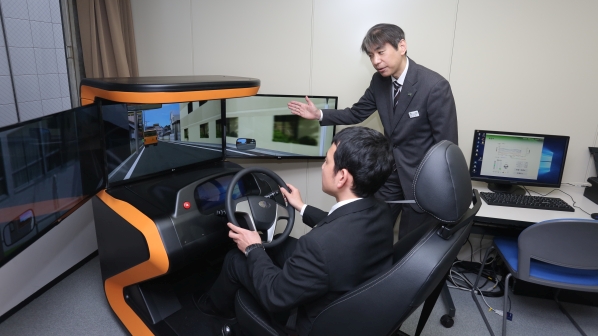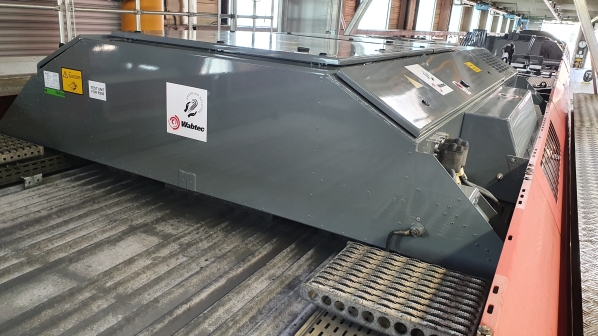The R290 refrigerant has a Global Warming Potential (GWP) of 3, compared with a GWP of 1430 for synthetic refrigerants such as R-134a used in traditional heating, ventilation and air-conditioning (HVAC) systems.
The company is conducting a 12-month operational trial of the Green Air system on a German Rail (DB) regional train, which will validate passenger comfort, maintenance and cost effectiveness in regular operation.
Britain: High Speed 2 (HS2) is trialling an artificial intelligence- (AI) powered carbon and cost estimation solution on a number of HS2 sites managed by the Skanska, Costain, and Strabag joint venture.
AI is automating building information model (BIM) processes to simulate various design options using different types and quantities of construction materials. The system visualises, measures and compares carbon emissions and the environmental impacts of construction, resulting in the selection of a more environmentally-friendly design.
The new solution, which is being developed by Skanska as part of a project funded through Innovate UK, will replace the current method of manually measuring 3D drawings.
Austria: ÖBB Infrastructure and Thales have successfully demonstrated a cloud-based digital interlocking, controlling an interlocking at Wöllersdorf station using a computer in Vienna.
There are currently 660 interlockings across the ÖBB network, including 298 electronic interlockings. Thales and ÖBB are collaborating on a range of digital technology projects, and are working towards introducing digital interlockings into daily operation as quickly as possible.
Britain: Infrastructure manager Network Rail (NR) has awarded Cowi and its subcontractors Railview and Viapontica a contract worth approximately £500,000 to improve the accuracy, efficiency and safety of tunnel examinations.
Cowi will combine machine learning and subsurface defect detection with existing virtual inspection tools used for bridges to reduce the time required to examine tunnels. The project will build on mobile mapping solutions using a combination of technologies to collect data that will be processed to build an accurate three-dimensional model, which can be viewed and manipulated by engineers.
Japan: East Japan Railway (JR East) has installed a Forum8 Drive Simulator in the safety planning division of its Electrical Construction and System Integration Office (Tesco) in Shibuya-ku, Tokyo.

The division is responsible for achieving the company’s goal of recording no fatalities or injuries to staff or passengers on the railway.
The Forum8 Drive Simulator is being used to train the drivers of various vehicles that are used in and around JR East stations and track areas. This can involve operating close to fast moving trains and negotiating restricted areas and hazardous structures such as pylons and other critical track-side infrastructure.
Finland: An Internet of Things- (IoT) based system that monitors the condition of gearbox actuators in switches has been successfully tested.
As part of the joint pilot, a collaboration between the Finnish Rail Agency and VR FleetCare, seven measuring stations monitored 80 switches across the Finnish network. The project was designed to detect faults before they disrupted operation. More than 500,000 gear reversal events were measured during the pilot.
Britain: Thales has installed thermal cameras at more than 108 NR staffing locations as a safety measure to help protect staff during the Covid-19 pandemic.
The thermal detection solution combines a highly sensitive thermal imaging camera with calibration and monitoring equipment to detect raised temperatures, giving an accurate indication of an individual’s body temperature to within +/- 0.3°C.s
The programme commenced nationally following two successful trials. NR and Thales initially planned to install 80 cameras, but have now installed 118 cameras after receiving additional requests from staff.

